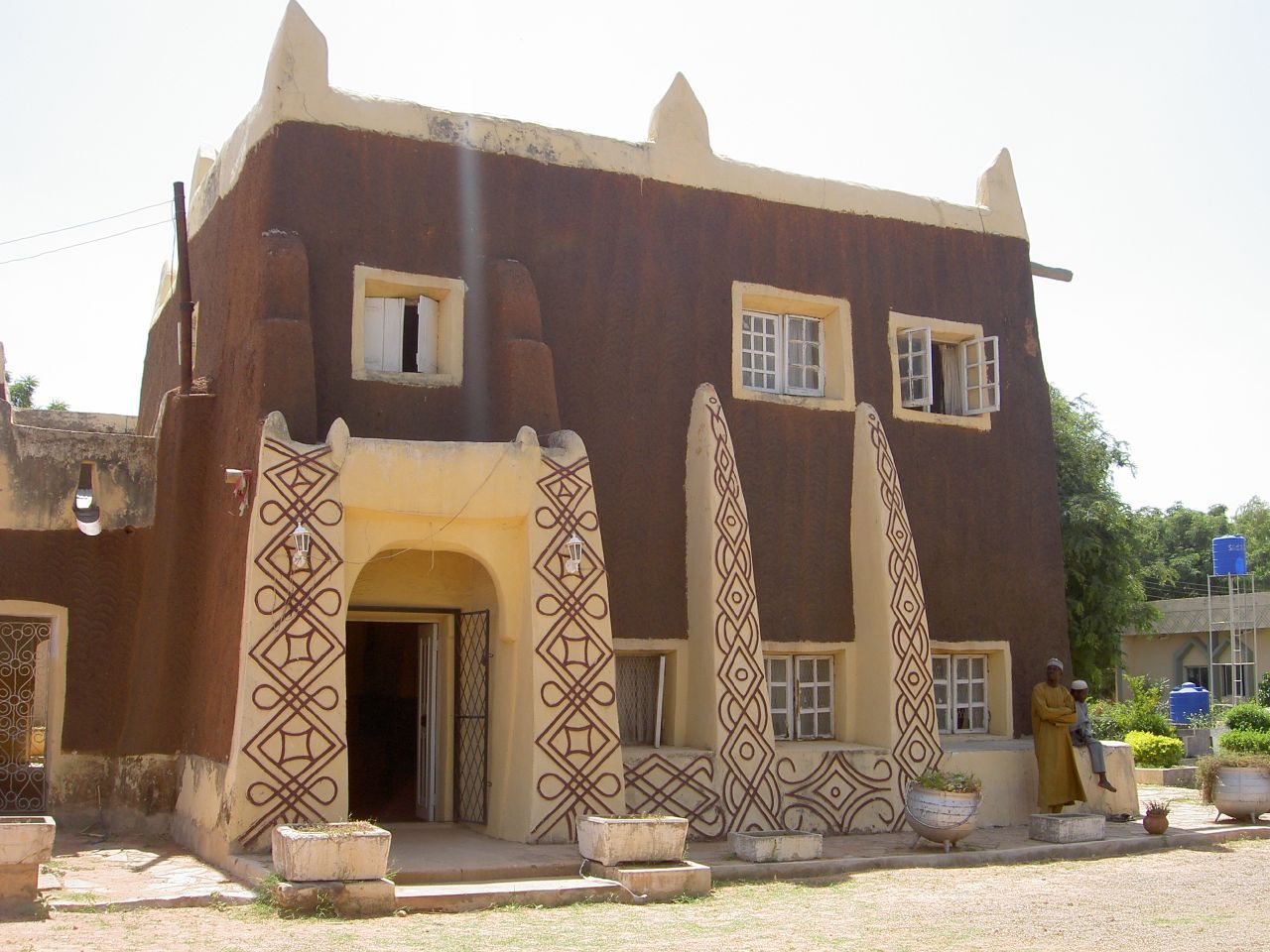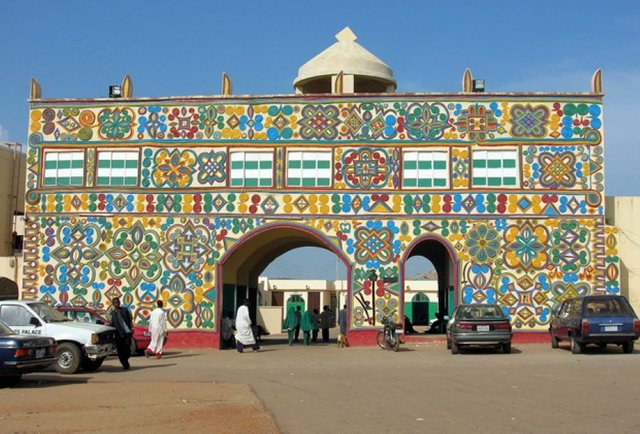THE HAUSA TRADITION OF NORTHERN PART NIGERIA

The Hausa, numbering more than 20 million, are the largest ethnic group in west Africa. They are widely distributed geographically and have intermingled with many different peoples.
Islam arrived in the area by the fourteenth century. By the fifteenth century, there were a number of independent Hausa city-states. They competed with each other for control of trade across the Sahara Desert, slaves, and natural resources. In the nineteenth century, the region was unified by ajihad(Islamic holy war) and became known as Hausaland. The British arrived and colonized the area in about 1900. Even during colonial times, the city-states and their leaders maintained some autonomy. Many Hausa traditions were preserved until late in the twentieth century.
The Hausa people are concentrated mainly in northwestern Nigeria and in adjoining southern Niger. This area is mostly semiarid grassland or savanna, dotted with cities surrounded by farming communities. The cities of this region—Kano, Sokoto, Zaria, and Katsina, for example—are among the greatest commercial centers of sub-Saharan Africa (Africa south of the Sahara Desert). Hausa people are also found living in other countries of west Africa like Cameroon, Togo, Chad, Benin, Burkina Faso, and Ghana.
Hausa is the most widely spoken language in west Africa. It is spoken by an estimated 22 million people. Another 17 million people speak Hausa as a second language. Hausa is written in Arabic characters, and about one-fourth of Hausa words come from Arabic. Many Hausa can read and write Arabic. Many can also speak either French or English.
According to tradition, Bayajidda, the mythicalancestor of the Hausa, migrated from Baghdad in the ninth or tenth centuryAD. After stopping at the kingdom of Bornu, he fled west and helped the king of Daura slay a dangerous snake. As a reward, he was given the Queen of Daura in marriage. Bayajidda's son, Bawo, founded the city of Biram. He had six sons who became the rulers of other Hausa city-states. Collectively, these are known as theHausa bakwai(Hausa seven).

Hausa folkloreincludestatsunya—stories that usually have a moral. They involve animals, young men and maidens, and heroes and villains. Many include proverbs and riddles.
Most Hausa are devout Muslims who believe in Allah and in Muhammad as his prophet. They pray five times each day, read the Koran (holy scriptures), fast during the month of Ramadan, give alms to the poor, and aspire to make the pilgrimage(hajj)to the Muslim holy land in Mecca. Islam affects nearly all aspects of Hausa behavior, including dress, art, housing, rites of passage, and laws. In the rural areas, there are communities of peoples who do not follow Islam. These people are calledMaguzawa.They worship nature spirits known asborioriskoki.
The Hausa observe the holy days of the Islamic calendar.Eid(Muslim feast days) celebrate the end of Ramadan (month of fasting), follow ahajj(pilgrimage to Mecca), and celebrate the birthday of the prophet Muhammad. OnEid al-Adha,Muslims sacrifice an animal to reenact the time Abraham was willing to sacrifice his son to God. Families also slaughter an animal in their own homes. This may be a male sheep or cow. People then celebrate with their relatives and friends and give each other gifts.
About a week after a child is born, it is given a name during an Islamic naming ceremony. Boys are usually circumcised at around the age of seven, but there is no special rite associated with this.
In their mid-to late teens, young men and women may become engaged. The marriage ceremony may take as long as several days. Celebrations begin among the bride and her family and friends as she is prepared for marriage. Male representatives of the bride's and the groom's families sign the marriage contract according to Islamic law, usually at the mosque. Shortly thereafter, the couple is brought together.
Following a death, Islamic burial principles are always followed. The deceased is washed, wrapped in a shroud, and buried facing eastward—toward the holy land of Mecca. Prayers are recited, and family members receive condolences. Wives mourn their deceased husbands for about three months.
Hausa tend to be quiet and reserved. When they interact with outsiders, they generally do not show emotion. There are also some customs that govern interaction with one's relatives. For example, it is considered a sign of respect not to say the name of one's spouse or parents. By contrast, relaxed, playful relations are the norm with certain relatives, such as younger siblings, grandparents, and cousins.
From an early age, children develop friendships with their neighbors that may last a lifetime. In some towns, young people may form associations whose members socialize together until they marry.
In rural villages, Hausa usually live in large households (gidaje)that include a man, his wives, his sons, and their wives and children. In large cities, such as Kano or Katsina, Hausa live either in the old sections of town or in newer quarters built for civil servants. Hausa housing ranges from traditional family compounds in rural areas to modern, single-family houses in new sections of cities.
to read more... website
gr8 people , i will like have the fura and nono